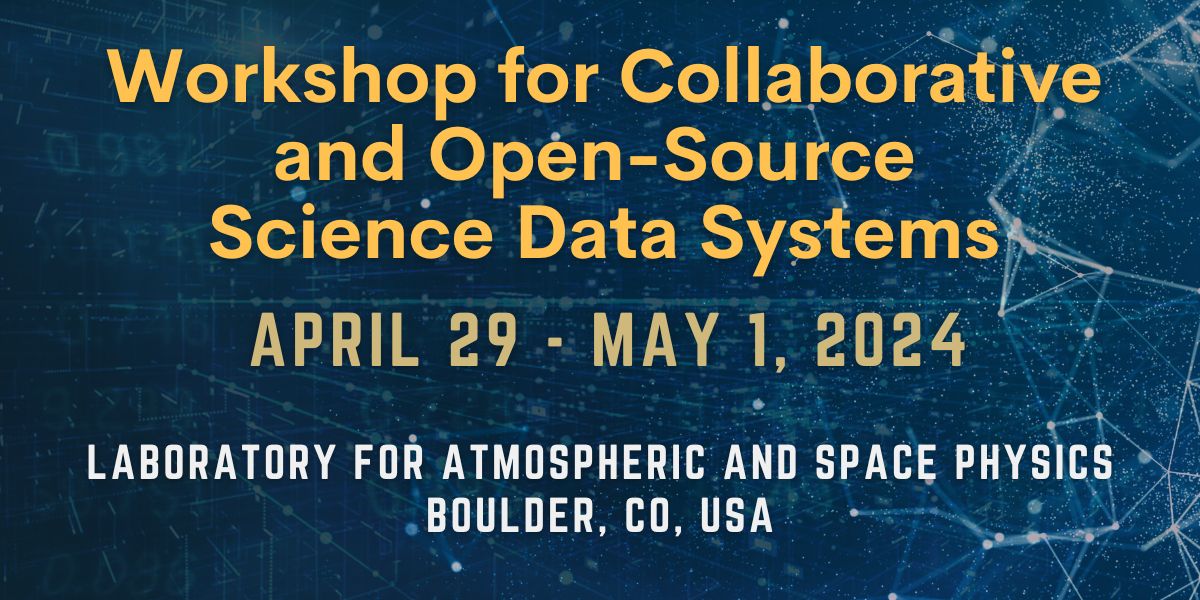
Abstract submission is now closed.
Registration open through April 15, 2024
We are pleased to announce the Workshop for Collaborative and Open-Source Science Data Systems, the first of a two-part workshop series sponsored by the NASA Science Mission Directorate’s Heliophysics Division with the goal of harnessing the community and strategic partnerships to establish standardized approaches and increased collaboration toward modern sustainable solutions for building Science Data Processing systems for NASA missions, within the Heliophysics community and beyond.
Within the umbrella of a Science Data System, we include solutions that support robust and efficient data ingest, data management, data processing, data analysis, and data dissemination to the community – fundamental building blocks to ensuring reproducible science. Currently, each mission designs and builds their own science data system, possibly drawing on past experiences, but with minimal external collaborations. A primary outcome of these workshops will be establishing a community and sharing best practices and common strategies that can be widely leveraged to minimize duplication of effort and take advantage of modern frameworks and tools, including cloud-based solutions, to save missions money and time and allow them to focus more time and effort on science goals.
We hope you will plan to join this interactive session in person on April 29 – May 1, 2024 at the Laboratory for Atmospheric and Space Physics in Boulder, CO. Registration is free and there are limited travel funds available to support in-person participation. There will be a virtual option for those who are unable to join in person.
We are currently accepting abstracts that address the following:
- The challenges your science data system must address and/or constraints it must operate within, for example:
- Mission size and duration (Flagship, Cubesat/Smallsat, International Space Station)
- Data volume (MB/day vs. TB+/day)
- Data velocity (continuous downlink, periodic downlink, required latencies for delivery)
- Data variety (formats, dimensionality, number of products)
- An overview of your science data system design, including its key technologies and how they are being used
- Lessons learned from designing, implementing, testing, operating, and maintaining your science data system
If you have specific questions about workshop, or to request travel funding support, please contact the organizing committee by email: sds-workshop@lists.lasp.colorado.edu
Local Organizing Committee
Greg Lucas
Science Data Center Lead, IMAP Mission
Bryan Harter
Science Data Center Lead, MAVEN and EMM Missions
Julie Barnum
Science Data System Lead, CLARREO Pathfinder Mission
Heather Cronk
Data Systems Team Lead, LASP

